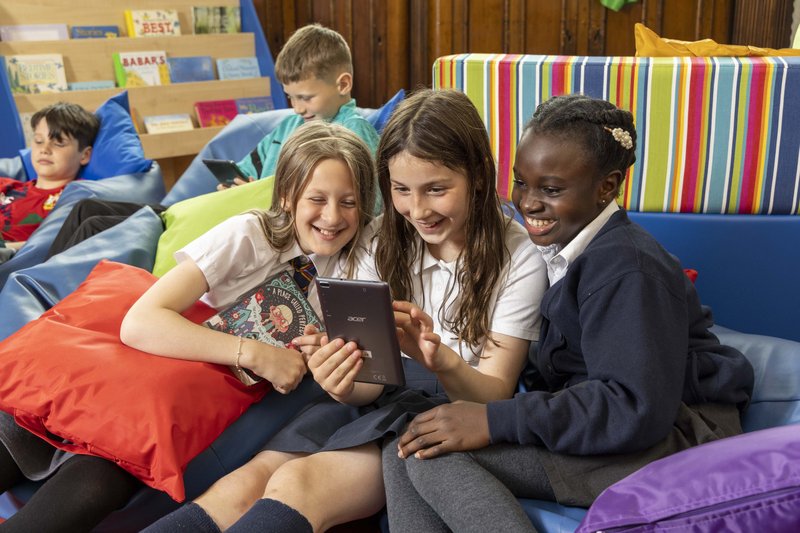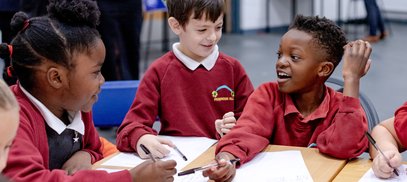The publication of the final independent review of the current curriculum, assessment and qualifications system in England on Wednesday 5 November 2025, alongside the UK government's response, marks an important moment for literacy.
We welcome the government’s ambition, through curriculum and assessment reforms, to ensure every child leaves school with the literacy skills, confidence and creativity they need to thrive.
Literacy at the heart of the curriculum
Placing reading, writing and oracy at the heart of the new curriculum, alongside maths and science, reinforces literacy as the foundation for learning, wellbeing and future opportunity.
Plans to strengthen reading and writing, introduce a national oracy framework, deliver a combined oracy, writing and reading framework, and widen access to enrichment through sport, the arts and culture have the potential to make a meaningful impact on children’s learning and development, as we see firsthand through our research and work in schools, communities and with families.
A library in every primary school in England
We particularly welcome the renewed funding commitment to ensure every primary school in England will have a library by the end of this parliament.
Through our Libraries for Primaries campaign, co-founded with Penguin Books in 2021, we have made it our mission to eliminate regional disparities in primary school library provision, break down barriers to opportunity and ensure every child can develop a lifelong love of reading.
We know firsthand the transformational impact that access to a well-resourced school library can have on children’s education, wellbeing and future life chances – making this commitment both timely and vital.

Media literacy in a rapidly changing world
The focus on media literacy and critical thinking is also significant, alongside financial and health literacy.
What it means to be literate is rapidly changing and it is important for society and education systems to keep pace with technological advancements.
Teaching children to navigate online content, spot misinformation and recognise credible sources prepares them to participate confidently in education, the world of work, democracy and our increasingly digital society.
The importance of reading and writing enjoyment
Evidence shows that reading for pleasure is the strongest predictor of future life chances, even more than family background. Yet, our latest research shows that only 1 in 3 children and young people currently read for pleasure in their free time - an all-time low.
As the government implements these reforms, it is vital that fostering an enjoyment of reading and writing is treated as equally as important as technical skill development. Only then will children be motivated to engage with literacy beyond the classroom.
The National Year of Reading in 2026, an initiative from the Department for Education in collaboration with the National Literacy Trust, offers a timely opportunity to turn ambition into action and embed a love of reading and writing in schools and communities.
This will not only ensure that children can read and write, but that they want to, as we inspire the next generation of readers, writers, storytellers and creators.
What's next?
More detail on how all these changes will be rolled out, delivered and supported in schools will be critical.
We look forward to working with government, schools and partners to build a future where literacy changes lives – and where every child, regardless of their background, can find their voice and reach their potential with the words to shape their world.
